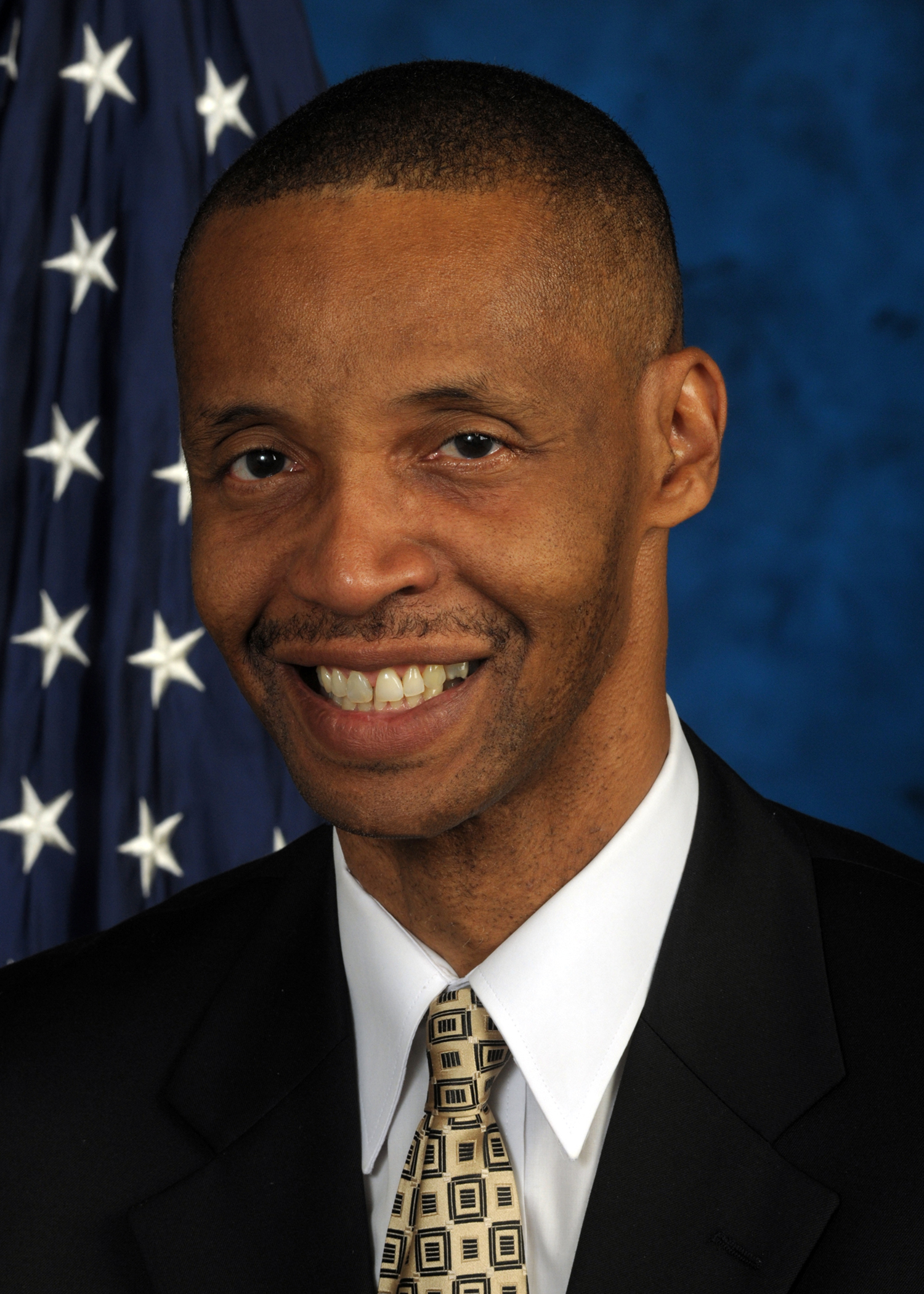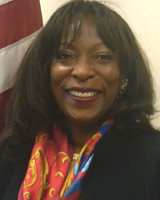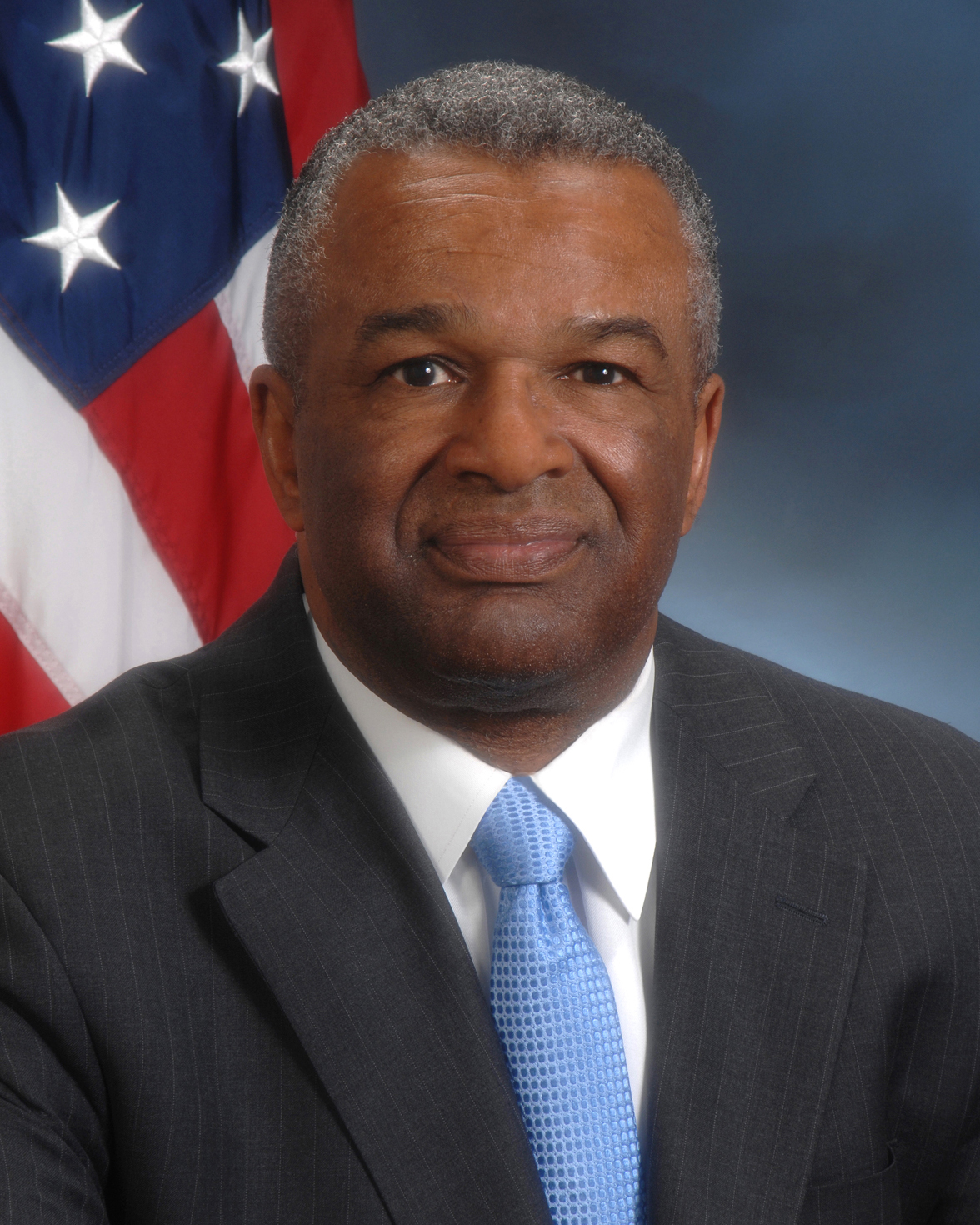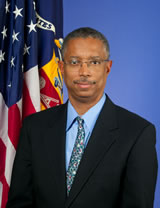Black History Month 2011
Tony Miller's Story: Staying Competitive in Education
Posted by on February 16, 2011 at 1:47 PM ESTEditor's note: This post is part of the Celebrating Black History Month series, which highlights the work of African Americans who are contributing to the President's goals for winning the future.
The value of education was instilled in me at a young age. I knew how fortunate I was to have parents who were first-generation college graduates from Virginia State College, a historically black college. My mother was a teacher and my father worked in finance and accounting. I felt it was imperative to make the most of the circumstances in which I was born.

When I was in first grade, we moved from Philadelphia, Pennsylvania to Peoria, Illinois. My sisters and I integrated our elementary school and I learned not to overreact to stereotypes and the biases of a few. I learned instead to serve as a bridge between different cultures and communities.
I received an academic scholarship to study engineering at Purdue University, which reinforced my belief that academics, not just prowess in athletics or entertainment, can be a path to success. After college, I attended Stanford Business School and received my MBA, finishing my studies in Japan. My career started in the private sector, working both in the US and abroad. These experiences gave me firsthand knowledge of the importance of education and what it takes to work in a globally connected world. This knowledge drives and motivates me every day. At the US Department of Education, we are working to ensure that all students have access to a high-quality education that will prepare them for the 21st century.
As Deputy Secretary and Chief Operating Officer at the US Department of Education, I have the privilege and honor of working with a very talented team of public servants. Every day we work to achieve President Obama’s 2020 goal of having the highest proportion of college graduates in the world. This is a formidable challenge -- 25% of our students drop out of high school and the US lags behind many other countries in preparing our youth with the reading, math, science, and critical thinking skills that are needed to succeed in today’s economy.
Under Secretary Duncan’s leadership, the Department is supporting states’ efforts to raise standards, improve instruction, develop the next generation of assessments, support the development of effective teachers and principals, and turn around low-performing schools. The Department is also investing in innovative practices that are demonstrated to have an impact on improving student achievement, closing achievement gaps, increasing high school graduation rates, and increasing college enrollment and completion rates. Our approach is both strategic and wide-ranging. We are establishing comprehensive and coordinated education policies, improving the data used to make decisions, improving the operating discipline of our key processes, enhancing the skills of our workforce, increasing transparency in the Department’s operations, and coordinating our work with other government agencies to be more efficient and effective.
Education is the civil rights issue of our generation. As President Obama said in his State of the Union address, the US can either innovate to stay competitive, or be left behind in this global economy. Our children need strong and effective educators working together with parents who are engaged in and enthusiastic about their child’s education. We are at a critical time when we can hold back or push forward into a better educated and competitive citizenry. I am here to work toward the latter.
Tony Miller is the Deputy Secretary of Education
Will Gunn's Story: Serving the Veterans Who Have Served America
Posted by on February 15, 2011 at 9:55 AM ESTEditor's Note: This post is part of the Celebrating Black History Month series, which highlights the contributions of African Americans in the Obama Administration whose work contributes to the President's goals for winning the future.
I was sworn in as the General Counsel for the Department of Veterans Affairs (VA) on May 26, 2009. I am a retired Air Force Colonel who served as a military lawyer in the Air Force Judge Advocate General Corps.
My team at the Office of General Counsel provides proactive legal advice and representation to the
 Department concerning all aspects of its program and management responsibilities. We have 717 employees, 450 of which are attorneys, in Washington, DC and in regional locations across the United States.
Department concerning all aspects of its program and management responsibilities. We have 717 employees, 450 of which are attorneys, in Washington, DC and in regional locations across the United States.I am a native of Fort Lauderdale, Florida, where I was raised and was an active member of Mount Olive Baptist Church. After high school I attended the U. S. Air Force Academy and graduated with military honors in 1980. I am also a 1986 cum laude graduate of Harvard Law School where I was elected President of the Harvard Legal Aid Bureau, the nation’s oldest student run legal services organization. In 1990, I was blessed to be selected as a White House Fellow and served in the Executive Office of the President in the Office of Cabinet Affairs. While on active duty I earned a Masters of Laws degree in Environmental Law from the George Washington University School of Law and a Master of Science degree in National Resource Strategy from the Industrial College of the Armed Forces.
In 2003, I was named the first ever Chief Defense Counsel for the Department of Defense Office of Military Commissions. I built a defense team and supervised all defense activities for detainees at Guantanamo Bay prison camp selected for trial before military commissions—-the first proceedings of their kind to be conducted by the United States in over 60 years.
After my retirement from the military in 2005 I served as President and CEO of Boys & Girls Clubs of Greater Washington, one of the largest affiliates of Boys & Girls Clubs of America. In 2008, I founded the Gunn Law Firm because of my desire to serve Veterans and their families. My law firm provided representation to military members and veterans in a range of administrative and civil law matters.
During the State of the Union address, the President focused the nation’s attention on his vision for “winning the future” through education and other initiatives. The President’s bold challenge to all Americans applies directly to me as VA’s General Counsel and I fully support Secretary Shinseki’s strategic vision to transform the VA to better serve Veterans by promoting excellence in the education of the future workforce to drive health care innovation.
President Obama challenged Secretary Shinseki and the Department of Veterans Affairs to transform the VA into a 21st century organization that is people-centric, results-driven, and forward-looking. These guiding principles require leaders and people who have a passion to effectively engage complex challenges and live up to the high standards of VA’s sacred mission to serve Veterans and their families. As a military Veteran I deeply understand the urgent challenges of our nation’s Veterans and I am passionate and honored to serve our Veterans and their families. I believe that as General Counsel for the Department of Veterans Affairs I am operating firmly within my life’s purpose of serving others and leading people.
Will A. Gunn is General Counsel for the Department of Veterans Affairs.
Learn more about Civil Rights, VeteransDenise Pease's Story: A 21st Century Government
Posted by on February 11, 2011 at 11:54 AM ESTEditor's Note: This post is part of the Celebrating Black History Month series, which highlights the contributions of African Americans whose work moves us closer to achieving the President's goal of winning the future.
I am honored to serve as Regional Administrator for the U.S. General Services Administration Northeast and Caribbean Region. I firmly believe that I stand on the shoulders of my ancestors, who laid the
 foundation for me to succeed. From an early age, my late parents encouraged me to understand and build from the past. My father served in the Armed Forces during World War II as a Tuskegee Airman in the Army Air Corps. After the war, he became an electrical engineer and eventually forged a career as a professor of electrical technology and the first African-American Assistant Dean at Suffolk Community College. My mother began her career as a milliner and was one of the first African-American graduates from New York’s Fashion Institute of Technology, eventually becoming an elementary school teacher.
foundation for me to succeed. From an early age, my late parents encouraged me to understand and build from the past. My father served in the Armed Forces during World War II as a Tuskegee Airman in the Army Air Corps. After the war, he became an electrical engineer and eventually forged a career as a professor of electrical technology and the first African-American Assistant Dean at Suffolk Community College. My mother began her career as a milliner and was one of the first African-American graduates from New York’s Fashion Institute of Technology, eventually becoming an elementary school teacher.Growing up, my father took me to meetings of the Association for the Study of African-American Life and History in the home of Rosetta “Mother” Gaston. In fact, the founder of the Association and “Father of Black History”, Dr. Carter G. Woodson, was one of my father’s mentors. At the meetings, my father, Congressman Edolphus Towns, former Congressman Major Owens, and other civic leaders engaged in lively conversations about building the necessary tools to build for the future by learning from the challenges and successes of the past.
Learn more about Economy, Fiscal ResponsibilityDana Gresham's Story: Creating Jobs Today, Investing in the Infrastructure of Tomorrow
Posted by on February 10, 2011 at 7:30 PM ESTEditor's Note: This post is part of the Celebrating Black History Month series, which highlights the contributions of African Americans who are helping achieve the President's goal of winning the future through their work.
I‘m from Birmingham, Alabama, a city that found itself at the center of America’s Civil Rights Movement during the 1960s. Although I grew up a decade after the movement’s triumphs – the Civil Rights Act of 1964 and Voting Rights Act of 1965 – my elementary and high schools remained segregated – not by law, but rather by custom and geography. I never imagined the day I would have the chance to vote for an African-American president, let alone work
for one. It’s a thrill beyond measure, a reminder of how far we’ve come, and a cause for great optimism about the direction in which our country is headed.
During the years since leaving Birmingham, I was lucky enough to attend and graduate from Georgetown University – where I met my future wife, a yankee from Connecticut. I then had the opportunity to work for several remarkable Members of Congress – rising through the ranks from staff assistant for Representative Eva Clayton, to legislative assistant and legislative director for Representative Bud Cramer, and ultimately to chief of staff for Representative Artur Davis, my hometown Congressman. After then-Senator Barack Obama’s election, I was invited to join the Obama-Biden Presidential Transition Team as a part of the Congressional Relations staff where I served as the legislative liaison for Department of Transportation Secretary-Designate Ray LaHood.
Today, I’m the Assistant Secretary for Governmental Affairs at DOT, where, under Secretary LaHood’s leadership, we’re building bridges between people who need jobs and jobs that need doing. In his State of the Union Address, President Obama said that for America to compete and win in the 21st century, we must out-innovate and out-build the rest of the world. During our two years in office, that’s been our primary focus – first in deploying $48 billion in Recovery Act money to 15,000 projects across the country and now working on the president’s six-year plan to create jobs today by investing in the infrastructure of tomorrow. Specifically, I serve as the secretary’s principal advisor on legislative issues. One of my key responsibilities is to facilitate communication between the department and members of Congress – as well as state and locally elected officials.
In my life, I’ve been fortunate to follow in the footsteps of a number of great mentors. Without question, however, my mother is my biggest influence. My parents divorced when I was very young and my mother raised my siblings and me essentially by herself. She didn’t earn a lot of money. She sometimes struggled to pay the bills. But no matter how tough the times were – and there were plenty of tough times – she rarely complained or made a fuss. Instead, she pushed forward – never thinking of herself, always thinking of others. Along the way, my mother encouraged my aspiration and instilled a sense of quiet determination. From her example, I learned the lessons that I now occasionally have the chance to pass on: Work hard, don’t fear sacrifice, act with integrity, pursue bold dreams, strive for excellence, and the rest will take care of itself.
Dana Gresham is the Assistant Secretary for Governmental Affairs at the Department of Transportation.
Learn more about Civil Rights, EconomyRon Sims’ Story: Providing Homes & Creating Opportunities for Future Generation
Posted by on February 9, 2011 at 6:25 PM ESTEditor's Note: This post is a part of the Celebrating Black History Month series, which highlight the work of African Americans who are contributing to the President's goals for winning the future.
As every American knows, who we are is deeply influenced by how we grew up – and the influences that shaped us. I grew up in Spokane, Washington, which is in the eastern part of the state, and had the opportunity to attend what is now known as Central Washington University. My parents were engaged in the community, and in the weight of things, I am James and Lydia Sims’ son through and through. My
 values, my expressions, and what I care for are all reflective of that. I was one of those lucky children who experienced lots of love, and the benefit of good parenting – and it’s why I feel so strongly about giving future generations of kids the good homes and quality opportunities they need.
values, my expressions, and what I care for are all reflective of that. I was one of those lucky children who experienced lots of love, and the benefit of good parenting – and it’s why I feel so strongly about giving future generations of kids the good homes and quality opportunities they need.And at HUD, I’m in a position to help do that. As Deputy Secretary, I see myself as clearing obstacles out of the way to let our talented staff do their jobs and affect change, particularly in traditionally underserved communities. Through the Federal Housing Administration, for example, we help responsible first-time homebuyers get access to a mortgage. For families who can’t afford a loan, HUD’s multifamily, tenant-based programs help them rent affordable housing. Our homelessness programs provide shelter and supportive services to those who don’t otherwise have a roof over their heads. A big part of our mission is helping what the Baptist tradition calls “the least, the last, and the lost.”
Our employees embody that determination to make a difference. And under the leadership President Obama and Secretary Donovan, our mission has expanded still further. We’re no longer just a housing agency – we’re engaged in comprehensive community development to help rebuild so many areas harmed by the economic crisis.
Learn more about Economy, Urban PolicyDr. William Spriggs's Story: Working Hard for America's Workforce
Posted by on February 8, 2011 at 5:56 PM ESTEditor's Note: This post is part of the Celebrating Black History Month series, highlighting the contributions of African Americans whose work is helping advance the President's goal of winning the future.
My parents had the greatest influence on who I am today. My father was a Tuskegee Airman and earned a PhD in Physics, and taught college for many years. My mother, also a World War II veteran, was a school teacher and taught me to read and write. They both instilled in me the values of h
 ard work, honesty, and being humble; as well as my faith. My mother completed college while I was in elementary school, and I remember studying history together. She would check out children’s books covering the topics she was learning about. Growing up when I did during the height of the Civil Rights movement and the 100th anniversary of the American Civil War were important influences on me.
ard work, honesty, and being humble; as well as my faith. My mother completed college while I was in elementary school, and I remember studying history together. She would check out children’s books covering the topics she was learning about. Growing up when I did during the height of the Civil Rights movement and the 100th anniversary of the American Civil War were important influences on me.I was born in Washington, DC and attended the public elementary schools in Northeast and Southeast Washington before my family moved to Norfolk, and then Virginia Beach. After high school I attended Williams College, and then graduate school at the University of Wisconsin-Madison. There I earned a Masters and PhD in economics, served as the co-president of the Teaching Assistants’ Association, American Federation of Teachers Local #3220, and most importantly met my wife of 25 years.
For six years I headed the National Urban League’s Institute for Opportunity and Equality, which was the Washington office for the National Urban League. As the Director I had the opportunity to hire and work with and learn from some amazing young bright minds including Dr. Maya Rockeymoore, a noted and outstanding voice on important issues to the African American community; Cheryl Hill Lee, who now heads the U.S. Census Bureau’s office on state and local finance; and Dr. Valerie Wilson a noted young economist and current Research Director for the National Urban League. And it was a big honor to be mentored by Hugh Price, the President of the National Urban League during most of my time there. The opportunity he gave me to work with the League placed me working alongside the Congressional Black Caucus, Civil Rights icons like Dr. Dorothy Height and Rev. Joseph Lowery, and labor leaders like Norman Hill and Bill Lucy.
Learn more about Economy
White House Blogs
- The White House Blog
- Middle Class Task Force
- Council of Economic Advisers
- Council on Environmental Quality
- Council on Women and Girls
- Office of Intergovernmental Affairs
- Office of Management and Budget
- Office of Public Engagement
- Office of Science & Tech Policy
- Office of Urban Affairs
- Open Government
- Faith and Neighborhood Partnerships
- Social Innovation and Civic Participation
- US Trade Representative
- Office National Drug Control Policy